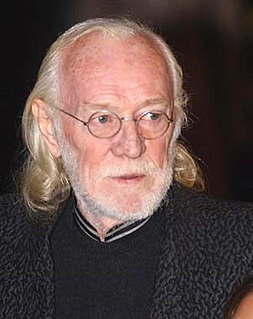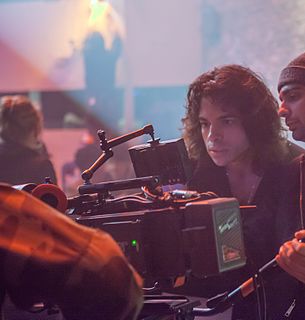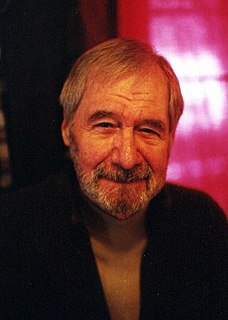A Quote by Clarence Page
One thing about winning a Pulitzer, it means you know what the first three words of your obituary will be: Pulitzer Prize-winner. After winning the Pulitzer, I couldn't help but notice how people suddenly looked at me with a newfound respect, and would say, "He's an expert." On the negative side, I developed a terrible case of writer's block for awhile, because I felt like readers would expect every one of my columns to be prize worthy.
Quote Topics
About
After
Awhile
Because
Block
Case
Columns
Developed
Every
Expect
Expert
Felt
First
Help
How
Know
Like
Looked
Me
Means
Negative
Notice
Obituary
One Thing
People
Prize
Pulitzer
Readers
Respect
Say
Side
Suddenly
Terrible
Thing
Three
Three Words
Will
Winner
Winning
Words
Worthy
Would
Writer
Writer's Block
Your
Related Quotes
So I think that in the beginning of your career you're just looking to work. Luckily for me, my first movie was 'Rabbit Hole' and I got to work with incredible people, a Pulitzer prize winning writer, John Cameron Mitchell, and all the actors involved. So it's tough, man, because you want to have credibility.
Winning the Pulitzer is a really mellow, fabulous thing. You don't sit and wait for them to open an envelope. You already know you won, and you have a nice lunch. Oscars are more stressful. I had to sit for three hours and wait for my category. I had to fly to Los Angeles. For the Pulitzer I just had to go up to Columbia. But, while the president of Columbia gave me the Pulitzer, Audrey Hepburn and Gregory Peck gave me the Oscar, so that was better.
I want people to see the beauty of that condition through the eyes of the characters. In doing that, they can allow people who have the condition to be more accepting of it, and to be open about it. That would be a contribution to the people who have it, and considering that 38% of the Pulitzer Prize winning poets are Bipolar, to think about how much these individuals have contributed to the human spirit.
Nothing concentrates the mind like a firm deadline, and a little voice in the back of my mind reminding me that, "If you don't write, you don't eat." We all want to be respected and appreciated, but when you get a big honor like winning the Pulitzer, people start to look for your work in a new way with higher expectations. Today, the best thing about having won is when I get a nasty comment from some internet troll I can remind myself of the Pulitzer and say, "Well, somebody appreciates me".
The Pulitzer isn't a physical object. You can't hold it in your hand. You get some money ($7,500 in my day), and you get a little Tiffany's paperweight with your name on it and the image of Joseph Pulitzer suspended in the crystal. When people see my 'Pulitzer' (I keep it in my sock drawer), they are pretty amazed at its meagerness.
































